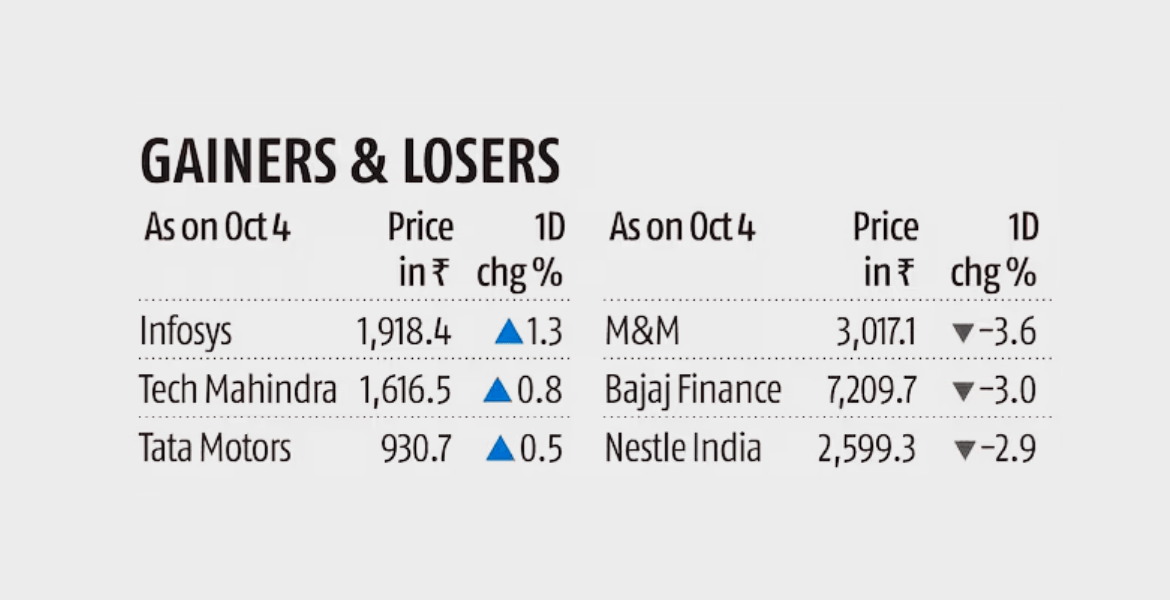. 05/10/2024 6:57 PM
The Indian stock market has been experiencing significant turbulence, culminating in its worst weekly performance in over two years. The 30-share Sensex plummeted by 808.65 points (0.98%) to close at 81,688.45, while the broader Nifty fell by 235.5 points (0.93%) to settle at 25,014.6. This sharp decline has been attributed primarily to escalating tensions in West Asia, which have triggered widespread risk-off sentiment among global investors.

Worsening Global Sentiment: The ongoing conflict in West Asia, especially between Israel and Iran, is making investors nervous. They fear that if the situation escalates into a larger war, it could disrupt oil supplies. This worry has led many investors to sell their stocks in India, which has pushed down prices.
Foreign Portfolio Investor (FPI) Outflows: Foreign investors, known as FPIs, have been pulling money out of Indian stocks. Just on one recent Friday, they sold about ₹9,897 crore worth of shares. Over the week, they sold more than ₹37,000 crore in total. Many of these investors are looking to put their money in markets like China, where they see better opportunities. Meanwhile, Indian investors have been buying stocks to try to balance things out.
Oil Price Pressures: India relies heavily on imported oil, so any issues in the Middle East can be a big problem for the economy. Recently, the price of oil has jumped to $79.1 per barrel, which is a significant increase. If tensions escalate further, analysts predict prices could soar to $100 per barrel. This would lead to higher inflation and make it more expensive for India to import oil.
Volatility in the Stock Market: The stock market has been very unstable, with the Sensex (a key index) showing big swings in both directions. In the past week, both the Sensex and Nifty fell about 4.5%, which is the largest drop since June 2022. This decline has wiped out ₹4.2 trillion in market value, shaking investor confidence even more.
In short, the combination of global tensions, foreign investor sell-offs, rising oil prices, and unstable markets is creating a challenging environment for investors in India.
Energy Sector: The oil and gas industry is facing tough times because oil prices are going up. This means companies that rely on fossil fuels will have higher costs to operate. As a result, there are worries about whether these companies can stay profitable, especially in a difficult economic environment.
Consumer Goods and Services: As oil prices rise, everyday expenses are likely to go up, leading to inflation. This can make people less willing to spend money on things like food, drinks, and other consumer products. Companies that sell fast-moving consumer goods (FMCG) and other non-essential items may see a drop in sales because of this.
Exports and Trade: The ongoing conflict has made it harder for India to trade with countries directly involved in the fighting, like Israel, Jordan, and Lebanon. Exporters are facing higher insurance costs and potential shipping problems, which complicate their ability to do business internationally.
In summary, rising oil prices and geopolitical tensions are affecting various sectors in India, making things more expensive and complicating trade relationships.
The geopolitical landscape has become increasingly volatile, with Iran's recent missile strikes on Israel heightening fears of a wider conflict. Analysts warn that any significant military response from Israel could lead to serious consequences for global oil supplies, particularly if Iran retaliates by blocking the Strait of Hormuz—one of the world's most critical oil transport routes.
Investor sentiment remains bearish, with ongoing geopolitical tensions leading to a cautious approach toward the market. The India VIX, a gauge of market volatility, has risen 7.3% to 14.1, indicating heightened fear among investors. The overall market trend suggests that volatility may persist in the near term, driven by both external geopolitical factors and internal economic challenges.
In conclusion, the current market decline is a multifaceted issue stemming from escalating tensions in West Asia, significant FPI outflows, and rising oil prices. As investors closely monitor the situation, the outlook for the Indian stock market remains uncertain, underscoring the need for careful management of both economic and diplomatic relations in this turbulent period.